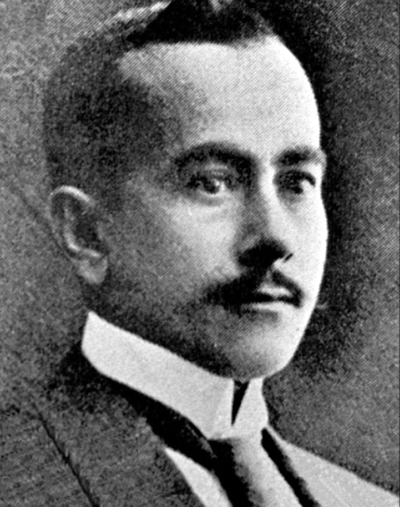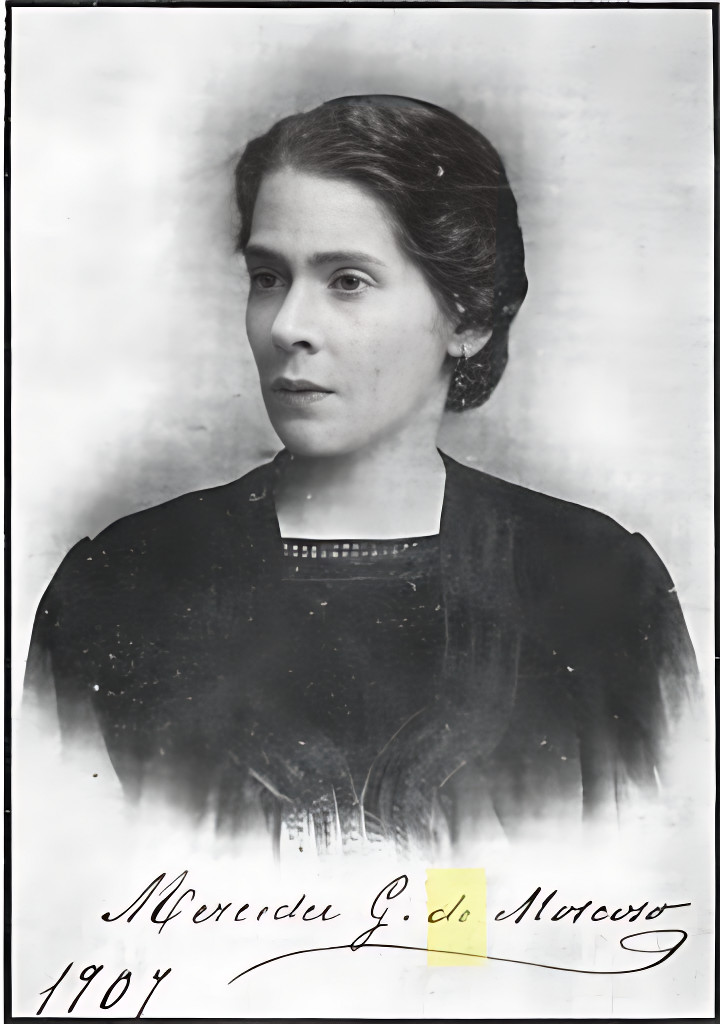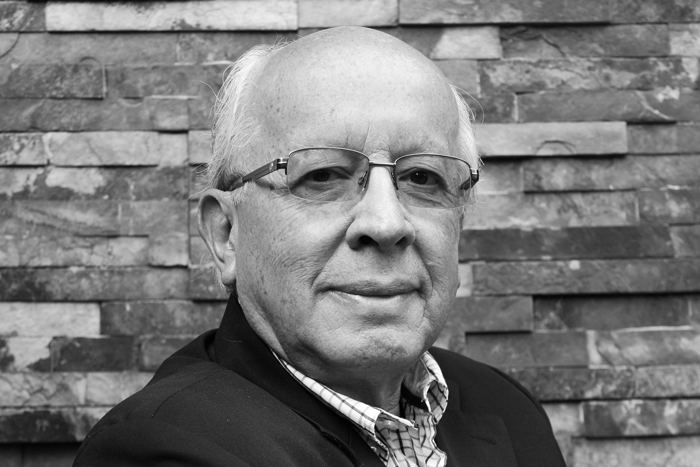Carlos Alberto Rolando Lobatón (Guayaquil, September 13, 1881 – Guayaquil, January 5, 1974) was an Ecuadorian doctor, writer, and renowned bibliographer. Known for his contributions to Ecuadorian literature and history, he opened his vast personal library to the public in 1913. Rolando was appointed director of the University of Guayaquil Library in 1925 and became a numerary member of the National Academy of History. In 1930, he founded the Guayaquil Historical Research Center and played a key role in preserving Ecuador’s cultural heritage. The National Authors Room at the Municipal Library of Guayaquil is named in his honor.
Early Life and Education
Carlos A. Rolando Lobatón was born on September 13, 1881, in Guayaquil, Ecuador, to Juan Bautista Rolando Chico and Ursulina Lobatón y Flor. His father was a prominent journalist, co-owner of the newspaper La Nueva Era, and a wealthy landowner. Rolando grew up during a time of political transformation in Ecuador, particularly influenced by the Liberal Revolution.
Rolando completed his early education in Guayaquil, attending various schools including Liceo Rocafuerte, Instituto Guayaquil, and Colegio Sucre. He earned his Bachiller (equivalent to a high school diploma) in Philosophy and Letters from Colegio San Vicente del Guayas in 1898. He then pursued advanced studies in chemistry and pharmacy, first at the School of Chemistry and Pharmacy in Quito, where he graduated as a Doctor of Pharmacy on November 6, 1905. In 1906, he continued his education at the prestigious University of San Marcos in Lima, Peru.
Career and Contributions
Upon returning to Ecuador, Rolando embarked on a distinguished career in both public health and literature. He became a key figure in public health institutions, contributing as a member of the Junta Superior de Sanidad (Superior Board of Health) and participating in organizations like the Sociedad Protectora de la Infancia (Children’s Protection Society) and the Sociedad Filantrópica del Guayas (Philanthropic Society of Guayas). His efforts helped improve public health in the region, particularly in combating the bubonic plague in Guayaquil.
In addition to his work in public health, Rolando made lasting contributions to Ecuadorian literature, history, and bibliographic scholarship. He opened his personal library to the public in 1913, which housed an impressive collection of over 1,300 works, as well as thousands of pamphlets, magazines, and newspapers. This resource became a valuable center for research and education in Guayaquil. In recognition of this, the municipality awarded him a Gold Medal of Merit for his dedication to cultural enrichment.
Throughout his career, Rolando authored numerous works on various subjects, ranging from medical chemistry to the history of Ecuadorian journalism. Notable among his publications are his Apuntes de Química Médica and Cronología del Periodismo Ecuatoriano y Pseudónimos de la Prensa Nacional, which remain important references for Ecuadorian scholars. His extensive bibliographic work also included studies on public works, key historical figures like Juan Montalvo, and Ecuadorian bibliographic classifications.
In 1930, Rolando founded the Centro de Investigaciones Históricas de Guayaquil (Center for Historical Research of Guayaquil), which he presided over until his death. This institution became a leading force in preserving and studying Ecuadorian history.
Recognition and Legacy
Carlos A. Rolando’s contributions earned him numerous accolades. In 1937, Richard Pattee, an American scholar, famously referred to him as “El Príncipe de los Bibliógrafos Ecuatorianos” (The Prince of Ecuadorian Bibliographers) for his efforts in preserving Ecuador’s literary and cultural heritage. Rolando was also an active member of several prominent organizations, including the Academia Nacional de Historia (National Academy of History) and the Sociedad Bolivariana del Ecuador (Bolivarian Society of Ecuador), and his work extended to various academic circles in South America.
His legacy as a scholar and bibliographer is also reflected in his meticulous cataloging and classification work, which formed the foundation for future research in Ecuador. His most significant bibliographic efforts include the Bibliografía Nacional and the Bibliografía Médica Ecuatoriana, a comprehensive medical bibliography compiled with José Ramón Boloña Rolando and Ignacio Jurado Avilés.
Institutions or Organizations he was a member of
- Junta Superior de Sanidad (Superior Board of Health) – Member
- Sociedad Protectora de la Infancia (Children’s Protection Society) – Member
- Sociedad Filantrópica del Guayas (Philanthropic Society of Guayas) – Member
- Academia Nacional de Historia (National Academy of History) – Member of Number
- Sociedad Bolivariana del Ecuador (Bolivarian Society of Ecuador) – Member
- Centro de Investigaciones Históricas de Guayaquil (Center for Historical Research of Guayaquil) – Founder and President (1930 until his death)
- Universidad de Guayaquil (University of Guayaquil) – Director of the University Library (appointed in 1925)
- Sociedad de Estudios Americanos de Quito (Society of American Studies of Quito) – Corresponding Member
- Logia Masónica Cinco de Junio (Masonic Lodge “Cinco de Junio”) – Member and later attained the honorary title of Maestro Treinta y Tres (Master of the 33rd degree)
- Círculo de Instrucción Libre (Circle of Free Instruction) – Member and founding member
- Círculo de Periodistas del Guayas (Circle of Journalists of Guayas) – Member
- Centro de Estudios Históricos y Geográficos del Azuay (Center for Historical and Geographic Studies of Azuay) – Member
Sharing his personal library with the city of Guayaquil
On May 24, 1913, he made his personal library available to the Guayaquil public. It was made up of more than 1,300 books, 3,200 brochures in 200 volumes, 712 newspaper and magazine collections with more than 40,000 copies and 3,800 loose pages. For this generous gesture the Municipality of Guayaquil conferred on him a Gold Medal. At this time he prepared and published his “Catalog of the National Bibliography of Dr. Carlos A. Rolando,” for which he was made a Corresponding Member of the Society for American Studies of Quito.
Personal Life and Death
Carlos A. Rolando was married to Carmen Chichonís, with whom he worked closely on his bibliographic projects. Although they did not have children, the couple was united by their commitment to education and cultural service. Together, they managed Rolando’s vast collection and played a vital role in making his resources accessible to the public.
Rolando passed away on January 5, 1974, in Guayaquil at the age of 93. Despite spending his final years in relative obscurity and financial hardship, his legacy endures through his scholarly contributions and the invaluable bibliographic collections he left behind. His life’s work continues to serve as an essential resource for Ecuadorian literary and historical studies, cementing his place as one of the most important bibliographers in the country’s history.
Timeline of Important Events and Accomplishments
- September 13, 1881:
Carlos A. Rolando Lobatón is born in Guayaquil, Ecuador. - 1898:
Completes his Bachiller (high school diploma) in Philosophy and Letters from Colegio San Vicente del Guayas, Guayaquil. - 1905 (November 6):
Graduates as a Doctor of Pharmacy from the School of Chemistry and Pharmacy in Quito. - 1906:
Continues his education at the University of San Marcos in Lima, Peru, studying advanced chemistry and pharmacy. - 1913 (May 24):
Opens his personal library to the public in Guayaquil, comprising over 1,300 books, 3,200 brochures, 712 collections of newspapers and magazines, and 3,800 loose pages. The Municipality of Guayaquil awards him a Gold Medal for this contribution. - 1913:
Publishes Catálogo de la Bibliografía Nacional del Dr. Carlos A. Rolando (Catalog of the National Bibliography), which leads to his recognition as a Corresponding Member of the Sociedad de Estudios Americanos de Quito (Society of American Studies of Quito). - 1918:
Publishes Apuntes de Química Médica (Notes on Medical Chemistry), an important contribution to Ecuadorian medical literature. - 1920:
Publishes Cronología del Periodismo Ecuatoriano y Pseudónimos de la Prensa Nacional (Chronology of Ecuadorian Journalism and Pseudonyms of the National Press), a key bibliographic work. - 1922:
Publishes Bibliografía del Sabio Luis Pasteur (Bibliography of the Scholar Louis Pasteur). - 1925:
Appointed Director of the University of Guayaquil Library. - 1925:
Becomes a Numerary Member of the Academia Nacional de Historia (National Academy of History). - 1930 (July 9):
Founds the Centro de Investigaciones Históricas de Guayaquil (Center for Historical Research of Guayaquil), which he leads until his death. - 1930:
Publishes Obras Públicas Ecuatorianas (Ecuadorian Public Works), another significant bibliographic and historical work. - 1932:
Publishes Don Juan Montalvo and Don Juan León Mera, works on two prominent Ecuadorian literary figures. - 1937:
North American scholar Richard Pattee refers to him as “El Príncipe de los Bibliógrafos Ecuatorianos” (The Prince of Ecuadorian Bibliographers), acknowledging his vast contributions to Ecuadorian culture and history. - 1940:
Publishes Almanaque Masónico Ecuatoriano (Ecuadorian Masonic Almanac), reflecting his role in Freemasonry. - 1941:
Publishes Bibliografía Catequista del Ecuador (Catechist Bibliography of Ecuador). - 1947:
Publishes Crónicas del Periodismo Ecuatoriano desde 1850 hasta 1869 (Chronicles of Ecuadorian Journalism from 1850 to 1869). - 1949:
Publishes Historia de la Sociedad Filantrópica del Guayas (History of the Philanthropic Society of Guayas). - 1951:
Publishes Bibliografía, Clasificación Decimal, Melvin Dewey (Bibliography, Decimal Classification, Melvin Dewey), further solidifying his role in bibliographic classification in Ecuador. - 1953:
Publishes Bibliografía Médica Ecuatoriana (Ecuadorian Medical Bibliography) in collaboration with José Ramón Boloña Rolando and Ignacio Jurado Avilés. - 1962:
Receives special recognition from the Municipality of Guayaquil during a ceremony honoring his lifelong contributions to Ecuadorian culture. - 1974 (January 5):
Passes away in Guayaquil at the age of 93, leaving behind a legacy of scholarship, cultural preservation, and public service.
Works
This is a partial list of his bibliographic works.
- Apuntes de Química Médica (1918)
- Cronología del Periodismo Ecuatoriano y Pseudónimos de la Prensa Nacional (1920)
- Bibliografía del sabio Luis Pasteur (1922)
- Obras Públicas Ecuatorianas (1930)
- Don Juan León Mera (1932), read it for free here.
- Don Juan Montalvo (1932)
- Los Centenarios de 1933 (1933)
- Catálogo de la Exposición de Libros de la Biblioteca de Autores Nacionales Carlos A. Rolando (1938)
- Almanaque Masónico Ecuatoriano (1940)
- Bibliografía Catequista del Ecuador (1941)
- Las bellas letras en el Ecuador (1944), read it for free here.
- Crónicas del Periodismo Ecuatoriano desde 1850 hasta 1869 (1947)
- Historia de la Sociedad Filantrópica del Guayas (1949)
- Bibliografía, Clasificación Decimal, Melvin Dewey (1951)
- Bibliografía Médica Ecuatoriana (1953), co-written with José Ramón Boloña Rolando and Ignacio Jurado Avilés.
References
- EcuRed, “Carlos A. Rolando Lobatón.” Retrieved on October 1, 2024.
- Rodolfo Pérez Pimentel, “Rolando Lobatón Carlos A.” Retrieved on October 1, 2024.
- Hoy Ecuador, “Carlos A. Rolando.” Retrieved on October 1, 2024.
- Enciclopedia del Ecuador, “Dr. Carlos A. Rolando.” Retrieved on October 1, 2024.
Name variations
- Carlos A. Rolando
- Carlos Alberto Rolando
- Carlos Rolando Lobatón
- Carlos Alberto Rolando Lobatón


